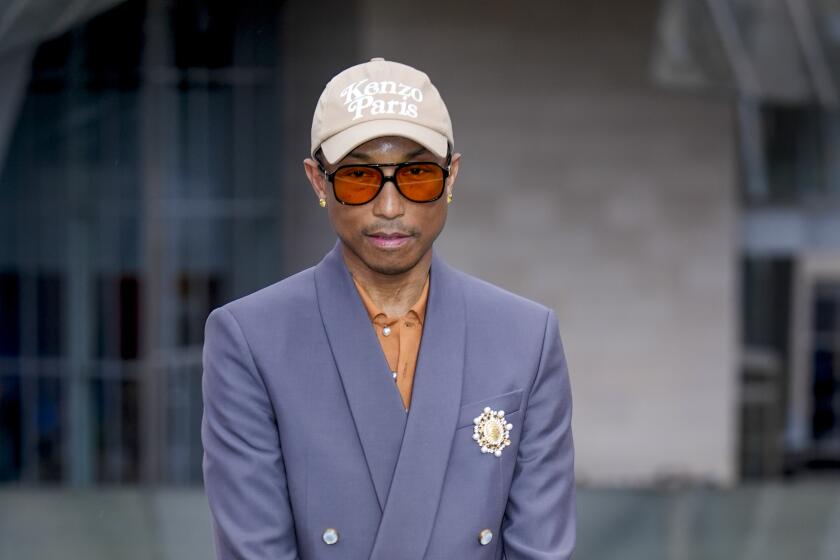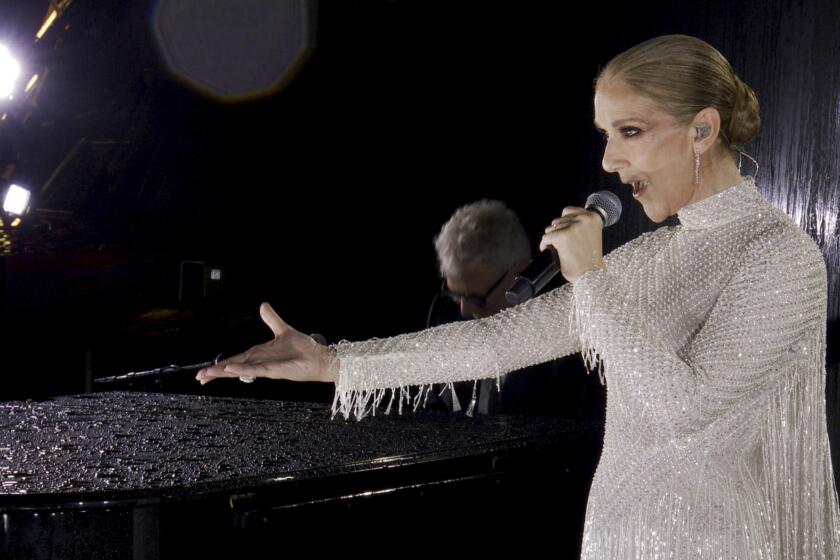A politically correct band with a message
Amir Salah Eldeen was driving along the Nile, past marsh grass and slums, when he spotted the aloof glow of luxury hotels and wrote a song that echoes with the line: “The eyes can’t find a beach.”
The beach is an allusion to the artifice the wealthy and powerful have built at the expense of the poor. It may seem an opaque turn of phrase, but Eldeen, 28, a member of the band Black Theama, says his audience in this city of overcrowded schools and broken hospitals understands the barbs and bites behind the lyrics.
In a country that locks up dissidents and quiets opposition voices, musicians, hip-hop artists and songwriters articulate their messages with veiled references and clever wordplay. It is politically and commercially wiser to be a wry social commentator than an iconoclastic guitar strummer naming names and howling into a teahouse microphone. You can sing about graft and shady state deals, but it is best not to be too specific.
“I wouldn’t be happy if I wrote a song that so angered the government that I got thrown in jail,” said Eldeen, his shaved head sweating in a hot breeze at a cafe in one of Cairo’s green and well-off neighborhoods. “I have to not cross that red line. We don’t want to limit ourselves as a band of activists.”
Black Theama skirts the edge of government tolerance. Its descriptions of poverty, fraudulent elections, politically connected businessmen and limping subway trains are reminiscent of the anti-colonial poets of the 1920s and of Sheik Imam and Ahmed Fouad Negm, whose songs were searing attacks on the Egyptian government in the 1970s.
The band’s sound is a fusion of traditional wedding and folk songs, reggae, jazz and blues spiced with socially conscious lyrics that resonate with a twentysomething generation that has grown up hero-less amid the country’s slipping international stature. Thousands of Egyptians have joined opposition Facebook groups and activist organizations, and for many, Black Theama has articulated a soundtrack for defiance.
“Black Theama and some other young bands are relating their lyrics to ongoing issues in our everyday life,” said Mohamed Saleh, an Egyptian music critic. “Black Theama uses a variety of musical genres that has attracted many young listeners. They mix a blend of very good music with strong lyrics that are easy and understandable and descriptive.”
The emergence of these groups coincides with rising anger over the government of President Hosni Mubarak. Egyptians are anxious about who will succeed the 82-year-old president and the future for many, especially the hundreds of thousands of young people who have college degrees but no decent jobs, is tinged more with the mood of a dark ballad than the latest love rattle from the region’s parade of pop divas.
“People today want real songs about their hard lives,” Eldeen said.
The disaffection Black Theama mines runs deeper than poverty, taking in the fears and hopes and, for many, the unrequited dreams of a nation whose recent history includes Middle East wars, the emergence of a free market and inflation that have left Egyptians apathetic and trusting nothing beyond what it takes to survive.
One of the band’s songs, “Zahma,” or “Crowd,” with lyrics by poet Mido Zoheir, speaks to this: “Ask me about bridges with kids sleeping underneath/Ask me about the poor and their burdens/Ask me about wolves and corruption/Ask me why I’m bearing these distracting miseries/I’d tell you that I was once one of the stupid poor/Who patiently waited for miracles and prophets.”
Eldeen is conscientious without brooding, keenly sensing the limits on how far to push his lyrics.
He didn’t start out a singer. He and his collaborative partner, Mohamed Abdou, were actors and skit-writers whose side passion was music. Then came an audition for a play at the French cultural center in Cairo. It did not go well and Eldeen and Abdou were politely asked whether perhaps they had other talents.
“We told the French lady, ‘Actually, we’re musicians and we have a couple of songs.’ They booked us in a festival and we had to quickly form a band.”
With little money, scant advertising and prickly songs that didn’t fit the pop radio format, the group, founded in 2004, played venues on the underground circuit. Eldeen and his bandmates, Abdou and Ahmed Bahr, blended vocal solos and harmonies to strike the pose of knowing bohemians with attitude.
Word of mouth, YouTube clips and a new CD have lifted the band toward the mainstream, that monied, yet precarious, territory where old fans question new commercially driven works.
“Egyptians are temperamental by nature. They love extremes,” Eldeen said. “They might latch on to a politically angry song but then immediately [turn] to a love song full of hope.”
Black Theama, which means black theme, encompasses the range of African music styles that have influenced the band. The songs on its album “Bahhar,” or “Sailor,” include wandering saxophone melodies, guitar riffs and smatterings of inspiration from artists such as Ray Charles and the Lebanese singer Fayrouz. Much of the band’s sound is rooted in the unabashed and evocative Nubian music of long-ago kingdoms that rose and fell across southern Egypt.
“People love Nubian music,” said Eldeen, a Nubian whose family left its ancestral home in the south decades ago when Egypt built a dam near Aswan. “Nubian drums are made of Nile water, clay and animal skin. It’s organic. All of it comes from life. It’s the kind of feeling we want to express with our lyrics.”
Another of the group’s songs mocks the eagle stamp, the national symbol emblazoned on identity cards and official documents that has become a metaphor for the state’s pervasive grip: “The eagle stamp is blue/When he said it was upside down/He was put into the blue trunk/In prison, they clothed him in blue and stamped him with the blue eagle stamp.”
The son of an accountant and a middle-level manager in a steel plant, Eldeen sat in a coffee shop in a neighborhood where lawn sprinklers tittered and young lovers wandered in the night along narrow roads thick with trees. His hands, as if pinching words into place, moved with the rhythm of his speech, and he said the band is careful to leaven its social message with studio-enhanced songs of romance and escape.
“In our concerts,” Eldeen said, “we do two or three social and political songs out of a set of about 20. But it is those songs that stay in the heads of people when they leave.”
jeffrey.fleishman@latimes.com
Amro Hassan of The Times’ Cairo Bureau contributed to this report.
More to Read
The biggest entertainment stories
Get our big stories about Hollywood, film, television, music, arts, culture and more right in your inbox as soon as they publish.
You may occasionally receive promotional content from the Los Angeles Times.











